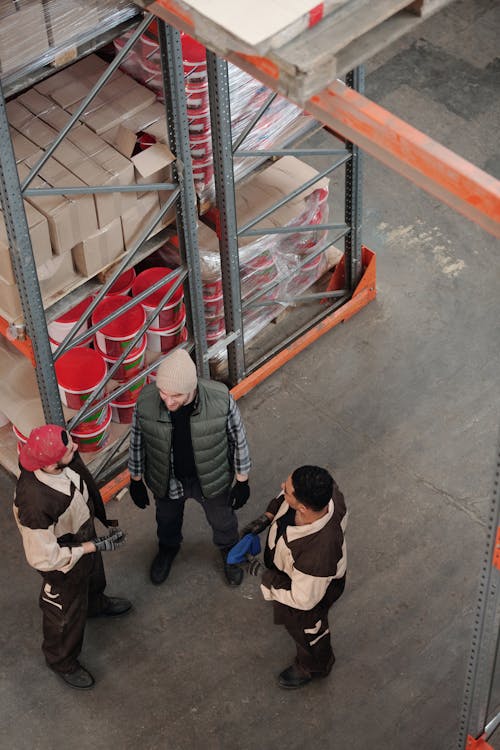The Comprehensive Guide to MC Logistics: Streamlining Supply Chain Management
Understanding MC Logistics: An Overview
MC Logistics is a critical component within the supply chain industry, playing a pivotal role in ensuring the smooth flow of goods and services from origin to destination. At its core, MC Logistics encompasses a variety of functions designed to optimize the movement and storage of products. These core functions include transportation management, warehousing solutions, and inventory control.
Transportation management within MC Logistics involves the planning and execution of the movement of goods. This includes selecting the most efficient routes, managing carrier relationships, and ensuring timely delivery to meet customer demands. Warehousing solutions, another fundamental aspect, pertain to the storage of products in strategic locations to facilitate quick distribution. These solutions often involve sophisticated systems for tracking inventory, managing space, and ensuring the integrity of stored goods. Inventory control, the third core function, focuses on maintaining optimal stock levels to prevent shortages or excesses, thereby balancing supply with demand.
The history and evolution of MC Logistics reveal a dynamic field that has continually adapted to changing market demands and technological advancements. Initially characterized by manual processes and limited technological integration, MC Logistics has transformed significantly over the decades. The advent of digital technologies, including automation, data analytics, and the Internet of Things (IoT), has revolutionized logistics operations, making them more efficient, transparent, and responsive.
Several key industries benefit immensely from MC Logistics services. The retail sector relies heavily on efficient logistics to manage the flow of goods from manufacturers to consumers, ensuring timely availability of products on store shelves. Manufacturing industries depend on logistics to source raw materials and distribute finished products efficiently. E-commerce, a rapidly growing sector, requires robust logistics solutions to handle the complexities of online order fulfillment, including rapid delivery and reverse logistics for returns.
Overall, MC Logistics is integral to modern supply chain management, providing essential services that enhance efficiency, reduce costs, and improve customer satisfaction. As the global economy continues to evolve, the importance of effective logistics solutions will only grow, underscoring the need for continuous innovation and adaptation in this field.
Innovative Strategies and Best Practices in MC Logistics
MC Logistics has continually set industry benchmarks through the implementation of innovative strategies and best practices aimed at enhancing both efficiency and customer satisfaction. Central to these advancements is the integration of advanced technologies such as Artificial Intelligence (AI) and the Internet of Things (IoT). AI algorithms optimize route planning and inventory management, making logistics operations more efficient. IoT devices provide real-time tracking and monitoring of goods, ensuring transparency and allowing for immediate corrective actions when disruptions occur.
An essential component of MC Logistics’ approach is real-time data analytics. By leveraging big data, the company can make informed decisions quickly, enabling proactive management of the supply chain. Real-time data analytics helps in identifying trends, forecasting demand, and mitigating risks, thereby minimizing delays and enhancing service levels. The ability to access and analyze data in real-time ensures that MC Logistics can adapt to changing conditions promptly and maintain a competitive edge.
Automation plays a pivotal role in reducing manual errors and expediting processes within MC Logistics. Automated systems handle various tasks such as order processing, inventory tracking, and shipment scheduling, which not only speeds up operations but also ensures higher accuracy. The reduction of manual intervention minimizes the likelihood of human errors, leading to improved reliability and customer trust.
Sustainability is another key focus area for MC Logistics. The company is committed to implementing eco-friendly transportation options, such as electric vehicles and alternative fuels, to reduce its carbon footprint. Additionally, energy-efficient warehousing solutions like solar panels and LED lighting contribute to the sustainability goals. These practices not only help the environment but also resonate with customers who prioritize eco-friendly business operations.
To illustrate the practical benefits of these strategies, consider the case of Company X, which partnered with MC Logistics to overhaul its supply chain. By integrating AI-driven route optimization and IoT-enabled tracking, Company X achieved a 20% reduction in delivery times and a 15% decrease in operational costs. Similarly, Company Y benefited from MC Logistics’ sustainable practices by cutting its carbon emissions by 10% through the use of electric delivery vehicles and energy-efficient warehouse management.
MC Logistics continues to evolve, setting industry standards through its commitment to innovation and best practices. By adopting advanced technologies, leveraging real-time data analytics, and prioritizing sustainability, the company not only enhances operational efficiency but also significantly boosts customer satisfaction.




